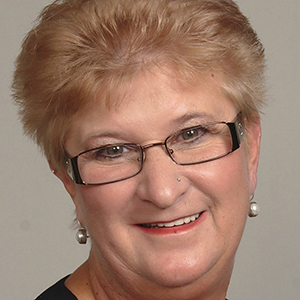

Written and reported by:
Catherine Ryan Gregory
Contributing writer
Behind the scenes of every medical procedure, doctor’s visit, vaccination appointment, and hospital stay, a biller/coder works to ensure medical procedures are coded correctly and healthcare providers are reimbursed properly. They document codes that correspond to everything done in a visit, from a strep throat test to bandaging a cut, to determine the cost of the appointment and who should pay. In short, they use an understanding of treatments, medical terminology, software, and more to help keep healthcare systems funded and running smoothly.
Some offices split billing and coding into separate jobs, while in others one person does both. No matter how the jobs are performed, billing and coding is a growing field with many opportunities.
A Stable Career in a Changing Field
Billers/coders can work from home after gaining on-the-job experience, or they can work in private practices, physicians’ offices, insurance companies, and at hospitals.
The field is changing quickly: Insurance companies continually revise their claims processing procedures, telehealth is becoming more common, and new understandings of medical conditions require new billing codes. Healthcare organizations are always in need of billers/coders who can adapt.
“Healthcare is here to stay,” says Nancy Szwydek, MPH, RN, RHIA, CRAT, CMAC, who is the assistant dean for accreditation at Purdue University Global. “If you want a good, stable job in healthcare but don’t want a clinical job, billing and coding is a great field to get into.”
Here are seven reasons to consider a billing and coding career.
1. You Have the Skills to Thrive as a Medical Biller and Coder
Successful billers and coders come from diverse backgrounds, but they have some crucial traits in common. These are a few of the hard and soft skills you’ll need.
2. Billers and Coders Are in Demand
While the medical billing field is changing, one thing remains constant: demand for skilled billers and coders.
“The medical coding field has expanded a lot. There are massive amounts of changes in codes and new contexts from emerging health concerns and medical knowledge,” Szwyzek says. “Still, I believe coding is always going to be prevalent and needed. It will not go away, but it will evolve.”
Job growth for medical records and health information specialists, a field that includes billers and coders, is projected to increase by 8.5% by 2031, according to the U.S. Bureau of Labor Statistics, slightly higher than the national average for all jobs.
Why the job growth? People are living longer, and some live with long-term health conditions such as diabetes. The growing number of medical visits will require more specialists to organize, understand, and correctly bill and code to ensure providers are properly reimbursed.
Billers and coders can work as independent businesses or freelancers, but medical organizations are still the primary employment option for billers and coders, Szwyzek says. They can work for hospitals, assisted living centers, rehabilitation centers, provider offices, and insurance companies, to name a few settings.
3. You Can Complete Your Education Quickly
Many potential billers and coders are attracted to the field’s flexible education requirements. With so many paths to take to a good career, workers can choose the route that works best for them.
Most billers require only a high school degree, Szwyzek says, though coders—and people who do both tasks—require more education. Coursework for a certificate or diploma can be completed in as little as four months or as long as a year.
Many medical coding schools also offer degree programs that students can complete in two to four years. Szwyzek points out that it’s possible to work as a biller/coder while earning an advanced degree. You can complete basic coursework in a few months, then work as you earn a higher degree at your own pace.
In addition, billers and coders can earn credentials, which act as verification of their skills. These may require passing an exam or work experience.
“Credentialing for billers and coders is voluntary, unlike for doctors and nurses,” Szwyzek says. “That said, some institutions—like hospitals—are going to be picky and prefer hiring someone who has a professional credential.”
This can increase your earning potential and competitiveness for the best jobs.
4. You Can Take Classes Online and at Your Own Pace
Many medical billing programs and schools offer online courses, which can be a great fit for students who are working or caring for family. Students can take classes at their own pace, and some programs offer asynchronous instruction, which means you can watch prerecorded content when it’s convenient.
Online programs also expand options for students since they’re not limited by geography. This can help you choose a program that best fits your needs.
Before enrolling, however, check a program and a school’s accreditation. Only credits from accredited schools and programs can be transferred if you need to change programs or apply completed coursework toward another degree. What’s more, “some professional credentials and employers require that you’ve graduated from a program that’s accredited and meets standards,” Szwyzek says.
5. Billers and Coders Can Work from Home
“Billing and coding is becoming more and more remote,” Szwyzek says. “Most hospitals and other organizations offer the option to work from home at least part of the time.”
That said, it’s a common misconception that you can go straight from graduation to a remote job. “Working from home is a possibility after a lot of experience,” Szwyzek says.
Working from home can provide flexibility (for caregivers, for example), but most employers still expect access to billers and coders during regular business hours.
Billers and coders can also work for private companies to which medical organizations outsource work. Many of these positions are remote.
Healthcare organizations may not want to deal with training billers and coders, staff turnover, or paying benefits, which means outsourcing is becoming more common. For fully trained specialists, this trend provides the opportunity to build thriving, at-home businesses.
6. You Can Start a Business with Low Overhead
With education and training, specialists can establish a home business with only a computer, a reliable medical coding and billing software program, and a list of potential clients. Costs of starting a billing and coding business include:
- Software:
- You can either buy software for a one-time price or use software as a service (SaaS), for which you pay monthly but also benefit from continual updates and upgrades. Monthly fees range from about $60 to $250 per month per user. Research the industry’s leading software and if providers in your area prefer one type of software over others. (Asking doctors in networking events is a quick way to gauge this.)
- Computer and hardware:
- Do you have a computer that is fast enough and with enough memory to get the job done? Will you need to buy a printer, copier, external hard drives, scanner, phone, or fax machine?
- Business identity:
- Potential clients expect legitimate businesses to have a professional website, LinkedIn profile, description of services, and other public-facing representations of your business.
- Professional services:
- You may need to work with an attorney to craft legal documents such as contracts and non-disclosure agreements (NDAs).
- Business insurance:
- This will protect you and your business.
- Office furniture:
- You’ll want ergonomically correct furniture, including desk and chair, as you’ll be working at your computer much of the day.
- Other software:
- Will you need software for accounting, lead generation, client management, or other tasks?
It can be less expensive to start a billing and coding business, compared to higher overhead companies. Other businesses may require office space, professional dues, supplies like medical equipment, and employees or contractors.
7. Freelancing is an Option
Independent medical billing and coding specialists have the option to choose freelance projects. This is a more flexible option than working for an employer like a hospital or committing to ongoing client contracts. For example, some might choose to cut back on work in the summer when their children are out of school.
Freelancing provides the flexibility to choose when to work and when to take a break, but it’s not a fit for everyone.
Freelancing may mean your income is less steady than it would be with consistent work. You may also find yourself spending more time looking for gigs, marketing yourself, and applying for temporary assignments.
Freelancers can:
Whatever your goals, there are plenty of options for creating a thriving billing and coding career—whether you work at home for someone else or yourself, in an office, or seasonally.

With professional insight from:
Nancy Szwydek, MPH, RN, RHIA, CRAT, CMAC
Assistant Dean for Accreditation, Purdue University Global
You may also enjoy:



